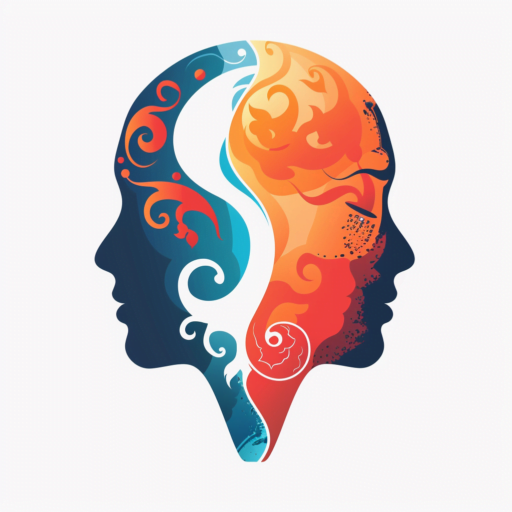Book Appointment Now
What Can Good Luck Mean? Unraveling the Psychology of Luck
Discover the fascinating psychology behind good luck and learn how your perceptions, beliefs, and actions shape your experiences of fortune. Unravel the complexities of luck and cultivate a lucky mindset to navigate life's challenges and opportunities with resilience and optimism.

Table of Contents
Have you ever wondered what good luck truly means? Is it a mysterious force that favors some individuals over others, or is there more to it than meets the eye? In this blog post, we’ll delve into the fascinating world of luck and explore how our perceptions, beliefs, and behaviors shape our experiences of good fortune.
The Perception of Luck
Luck is a subjective construct, deeply influenced by our individual experiences and beliefs. What one person considers a lucky break, another might view as a mere coincidence. Our perception of luck is shaped by various cognitive biases, such as:
- Hindsight bias: This is the tendency to interpret past events as more predictable than they actually were. We often look back on lucky occurrences and think, “I knew it all along!”
- Availability heuristic: This bias leads us to overestimate the likelihood of events that are easily remembered. If we can readily recall instances of good luck, we may believe that luck is more common than it really is.
Moreover, our personal experiences and cultural norms play a significant role in how we perceive luck. For example, in some cultures, finding a four-leaf clover is considered a sign of good luck, while in others, the number seven is believed to bring fortune.

The Psychology of Feeling Lucky
Believing in good luck can have a powerful impact on our mindset and behavior. When we feel lucky, we often experience a boost in confidence and self-efficacy, which can lead to positive outcomes. This phenomenon is known as the “lucky mindset.”
One way to cultivate a lucky mindset is through learned optimism. By consciously choosing to interpret events in a positive light, we can train our brains to see opportunities and possibilities rather than obstacles and setbacks.
Superstitions and rituals can also play a role in fostering a sense of control and luck. Many people carry lucky charms or engage in specific behaviors, such as knocking on wood, to invite good fortune. While these practices may not directly influence outcomes, they can provide a placebo effect, boosting our confidence and motivation.
Luck as a Self-Fulfilling Prophecy
Our beliefs about luck can become self-fulfilling prophecies. When we expect good things to happen, we are more likely to take action and seize opportunities that align with our goals. This is partly due to the power of self-efficacy, which is the belief in our ability to succeed in specific situations.
Moreover, a belief in luck can fuel motivation and persistence. When faced with challenges, those who believe in their own good fortune are more likely to persevere and maintain a positive outlook.
Interestingly, luck and opportunity often go hand in hand. Those who consider themselves lucky tend to be more open to new experiences and willing to take calculated risks. By embracing serendipity and being prepared for chance encounters, we can create our own “lucky” circumstances.
The Downside of Believing in Luck
While a belief in luck can be empowering, it’s essential to recognize its potential downsides. One common pitfall is the illusion of control, where we overestimate our influence on random events. This can lead to superstitious thinking and irrational decision-making, such as:
- Gambler’s fallacy: This is the belief that past events influence future probabilities. For example, a gambler might think that a string of losses increases their chances of winning the next round.
- Illusory correlations: This involves perceiving relationships between unrelated events or actions. For instance, someone might attribute a job promotion to wearing a specific “lucky” outfit to the interview.
In extreme cases, an overreliance on luck can lead to learned helplessness and passivity in the face of adversity. If we believe that our fate is entirely determined by chance, we may fail to take proactive steps to improve our circumstances.
Cultivating a Lucky Mindset
To harness the power of luck without falling prey to its pitfalls, it’s essential to cultivate a balanced, proactive mindset. Rather than viewing luck as a mystical force, we can reframe it as a combination of preparation, opportunity, and positive thinking.
Here are some strategies for developing a lucky mindset:
- Set realistic goals and celebrate small victories along the way.
- Practice gratitude by focusing on the positive aspects of your life.
- Embrace challenges as opportunities for growth and learning.
- Develop a growth mindset, viewing setbacks as temporary and surmountable.
- Stay open to new experiences and be willing to take calculated risks.
By adopting these practices, we can build resilience and adaptability, enabling us to navigate life’s unpredictable events with greater ease and optimism.
The Social and Cultural Dimensions of Luck
It’s important to recognize that luck does not exist in a vacuum. Our perceptions of luck are deeply influenced by social and cultural factors, such as:
- Social inequalities: The notion of luck can sometimes perpetuate the “self-made” myth, obscuring the role of systemic advantages and disadvantages in shaping individual outcomes.
- Cultural differences: Eastern and Western cultures often have divergent perspectives on fate, destiny, and personal control. For example, in some Eastern traditions, luck may be seen as a manifestation of karma or divine intervention.
- Religious and spiritual beliefs: Many people’s understanding of luck is intertwined with their religious or spiritual worldviews. Some may view good fortune as a blessing from a higher power, while others may see it as a test of faith.
By acknowledging these social and cultural dimensions, we can develop a more nuanced understanding of luck and its role in our lives.

Conclusion
In conclusion, good luck is a complex and multifaceted concept that extends far beyond simple chance. Our perceptions, beliefs, and actions all play a role in shaping our experiences of good fortune.
By cultivating a positive, proactive mindset and striking a balance between acknowledging luck and taking personal responsibility, we can navigate life’s challenges and opportunities with greater resilience and optimism.
Remember, luck is not a magical solution to all of life’s problems, but it can be a powerful tool for motivation, perseverance, and growth. So embrace the possibilities, stay open to serendipity, and create your own “lucky” path forward.
| Key Takeaways | Explanation |
|---|---|
| Luck is subjective | Our perception of luck is shaped by individual experiences, beliefs, and cognitive biases. |
| Lucky mindset | Believing in good luck can boost confidence, motivation, and resilience. |
| Self-fulfilling prophecy | Our beliefs about luck can influence our actions and outcomes. |
| Balanced perspective | It’s important to acknowledge luck while also taking personal responsibility. |
| Social and cultural factors | Luck is influenced by broader social, cultural, and religious contexts. |
“Luck is what happens when preparation meets opportunity.” – Seneca
By unraveling the psychology of luck, we can gain a deeper understanding of how our mindset and actions shape our experiences of good fortune. So go forth, embrace the possibilities, and create your own luck!



